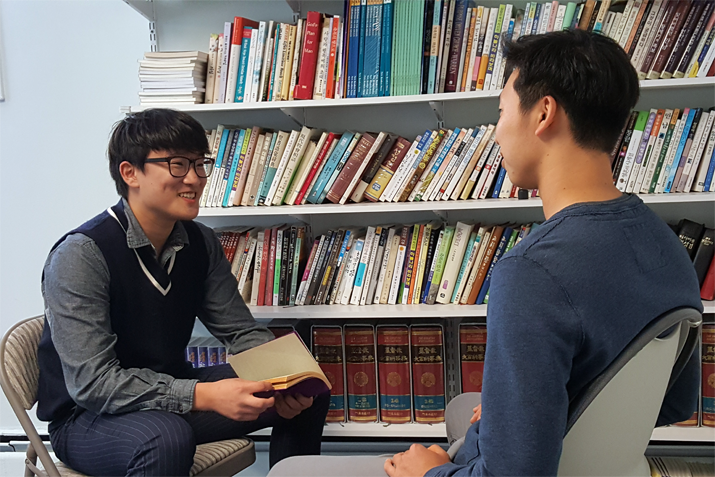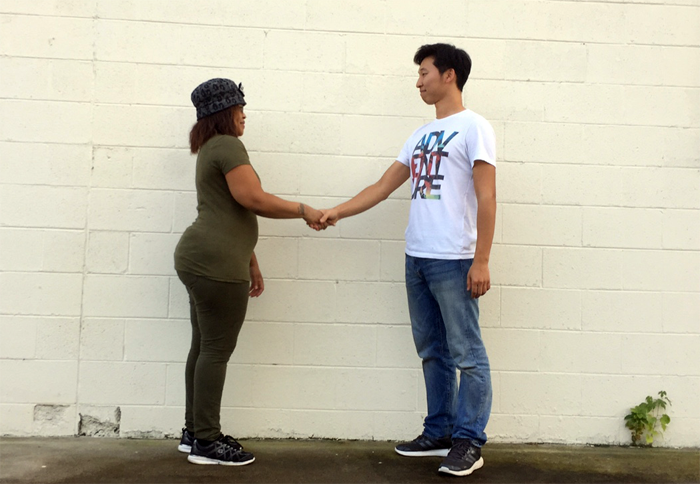Until recently, a black person being in a leadership position in the United States was unimaginable, due to the extreme racism. However, on November 4, 2008, Barack Obama was elected as president and it seemed like many improvements would be made to decrease racism. However, instead, it began to revive. On July 5th a young black man was shot and killed by police in Louisiana. As time goes by, the conflict between blacks and whites has begun to further intensify. There were protesters shouting “Black Lives Matter” in anger and desperation for equality. Even now this conflict continues and we see stories like this in the news very often.
I am confused. I thought people’s ideas about race had changed into more of an idea of equality. However, the conflicts that are happening now tell me that they have not. Have there been any improvements in America? How can racism like this continue taking place there? I asked some of my friends for their opinions about racism in America. One of my black friends said that when he walks on a street with his white friends, police often come near and ask his white friends if he is bullying them (he lives in New York City).
I am confused. I thought people’s ideas about race had changed into more of an idea of equality. However, the conflicts that are happening now tell me that they have not. Have there been any improvements in America? How can racism like this continue taking place there? I asked some of my friends for their opinions about racism in America. One of my black friends said that when he walks on a street with his white friends, police often come near and ask his white friends if he is bullying them (he lives in New York City).
My Hispanic friend also told me a similar story. Some even told me that the police are extremely racist when I asked them what they thought about the police. When I heard that, I figured that people’s ideas about race had not really changed that much.
When I think of a black man being president for two terms, I can tell that the racism nowadays is not the same as in the past, but it remains quite extreme even now.
In comparison to the past, how has this racism changed?
When I think of a black man being president for two terms, I can tell that the racism nowadays is not the same as in the past, but it remains quite extreme even now.
In comparison to the past, how has this racism changed?

I asked Suyeon Cho, a counseling psychologist, about it.
Q: In comparison to the past, how has racism in the United States changed?
In the past, people had negative stereotypes that blacks were lazy and violent. They expressed their stereotype directly through racial segregation and other extreme forms of discrimination. This old type of racism is disappearing and in fact has mostly disappeared nowadays, but the negative stereotypes about blacks or other minorities have not. On the surface, Americans have an aversion towards racial discrimination, but we can say it has changed to symbolic racism. This kind of change is not real change but illusory. We can say that negative stereotypes have not disappeared but have become subtle, and not expressed publicly.
Q: Then how have these subtle forms of racism come to be expressed publicly?
These stereotypes began to come to the surface because of the use of excessive force by police toward blacks.
Q: What can we do to eliminate racism?
We need to acknowledge that bias can be learned from the media or circumstances around us and use education and other social efforts to change this bias. I also believe we need peaceful protests promoting racial integration.

I asked my friends similar questions.
Q: Until recently, a black person being in a leadership position in the United States was unimaginable, due to the extreme racism. However, on November 4, 2008, Barack Obama was elected as president and it seemed like many improvements would be made to decrease racism. However, this racism began to revive. What do you think about racism in America? Do you think there have been any improvements?
I think there have been improvements because blacks used to not even go to school with white people, but racism will always be a thing unless our human rights of free will and freedom to say what we want are taken away. [Jarrod Douglas (16)]
Yes, they have made major improvements regarding racism. We can solve it by just facing the fact that everyone is equal, not one person is better than another. [Gabe Leth (16)]
Yes, I believe so. There were big improvements in America over politics and in our lives. However, as an Asian, I think racism still exists in America, but not quite as much as in the past. I can see racism still existing in many forms and views in our daily life. I live in Michigan, and I can see that there are different types of lifestyles for different nationalities and in different areas. When I talk with my African American friends in Southfield, I felt that they had some bad feelings about White Americans or other nationalities. Also in college, there are lots of different groups of people staying together in a certain area according to skin color or nationality. Several times, I saw black and white students arguing in the school cafeteria. It does not mean that they are racist, but I think they still feel more comfortable when they are together than with others. [Sung Min Cho (23)]
As we can see through just a few questions, we have different ideas and opinions about this, and there would be an even greater variety of ideas and opinions if I asked more people. However, we all know one thing: racism is not right, and should be eradicated. This racism does not only apply to one race, it applies to all. I have also experienced racism as an Asian who stays and studies in America. Actually, racism does not only exist in America. It exists in every country and culture: Asia, Europe, South America, Africa, Australia, and North America. For example, in Korea, my home country, has serious problems with racism. Southeast Asians are believed to be lazy in Korea and are often mistreated during employment. Even whites are discriminated. Korea has this idea of the single-race nation; it has been changing to the multiracial nation, so there are still lots of people looking at foreigners with the color lens, including whites. According to a Canadian guy, who lived in Korea for almost 20 years, Many Koreans prefer white Canadians for their teachers, but many parents try to break up relationships between their daughters and foreigners (including whites). In Canada, racism toward native Canadians exists even now. These racisms are certainly not as serious as for blacks or Southeast Asians; however, we can see that there are subtle or extreme forms of racism all around the world. If racism is this widespread and it does more harm than good, I think we should take some actions to improve it.

I know there are many different opinions about how to deal with it, but that should not stop us from doing what needs to be done. There are many ways to solve a problem, not just one. Let’s do something that we think will make a positive impact, but peacefully. If not, this tragic cycle will continue. We need to acknowledge that we still have stereotypes about race. If we can do this, I believe we will hear fewer tragic stories, even if it might be impossible to completely eliminate racism.

Sang Jun Park 박상준
Grade 10th
Brother Rice high school
By Sang Jun Park 박상준

